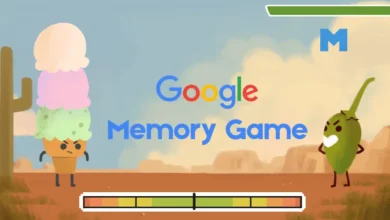
The Future of Gaming: What’s Changing in How We Play
Future of Gaming: What’s Changing How We Play
The gaming landscape is evolving at an unprecedented pace, transforming how players engage with games, compete, and connect with one another. While traditional gameplay remains popular, emerging trends in technology, shifting player preferences, and innovative industry models are paving the way for a new era in gaming.
By staying attuned to these changes, we can uncover valuable insights into the future of gaming and its implications for both gamers and developers. Exploring the latest trends and looking ahead allows us to gain a deeper understanding of what lies ahead for gamers and how our current experiences in the 21st century are evolving.
The Rise of Social Gaming Communities
Games have evolved from exclusively solo experiences or one that is limited to local LAN parties; they have become the places where people from over the globe meet, compete, and cooperate. Social features are today at the foundation of the gaming experience, providing players an intuitive way to interact with each other, even while immersed in gameplay.
Community-driven events, tournaments, and online hangouts are now commonplace. For instance, live discussions where gamers share tips and (sometimes) tall tales are hosted on gaming forums and platforms. Furthermore, many modern games are designed with matchmaking (finding the ideal partners and opponents, rather than marriage material) and chat capabilities, making it easy to team up with others. Developers are also focusing on features that let players celebrate victories or strategize for the next challenge together, further erasing the boundary between gaming and social media.
These changes mean that gaming is not exclusively about skills and kills anymore, but rather a platform that optimizes social interactions. This functionality has become increasingly important and many gamers rate their interactions during games as vital to their enjoyment of the experience.
Evolving Monetization Models
With gaming now encompassing a wide range of monetization models, everything has changed. Developers are offering their content in new ways, and gamers are engaging with their favorite titles through subscription services, battle passes, and microtransactions. These options allow players to pay in a manner that suits them while ensuring that games continue to thrive. These changes not only make gaming more accessible and fun, but also help secure ongoing funding for development.
The ongoing evolution of gaming is most evident in titles designed for short, engaging sessions. Puzzle games, casual multiplayer platforms, and themed slot games have flourished by providing accessible and rewarding entertainment in bite-size helpings. For example, popular titles like the Cash Eruption online slot game successfully combine immersive themes with exciting gameplay mechanics, appealing to both casual players and enthusiasts. These games effectively utilize monetization techniques, offering in-game bonuses and rewards that encourage players to return for more.
While the new breed of games are great examples of innovation and the sustained delivery of great content, they have also raised a number of issues. Some players appreciate the constant flow of updates, while others feel overwhelmed by the pressure to purchase additional content or maintain subscriptions. The balance between satisfying players and ensuring financial sustainability continues to be a challenge that developers must face.
Amidst the divergence of opinion, one thing is very clear: monetization models are redefining game experiences. It’s not only about selling products; they are designed in a way that retains users over time and keeps them entertained in an ever-evolving environment.
Cross-Platform Play and Accessibility
Barriers that prevent players from experiencing the fun due to their platform choice are slowly but surely crumbling. Cross-platform play enables players across consoles, PCs, and even mobile to join together or face off in the same game. This is a trend that eliminates the limitations that once separated players by device preference and is rapidly transforming the gaming environment into a single ecosystem.
Accessibility is also on the rise. Developers are integrating features such as customized controls, visual and audio assistants, and difficulty adjustments to make games playable for all. These efforts not only expand the player base but also promote inclusivity, proving that gaming is for everyone.
Hardware innovation also plays a part. For example, cloud gaming services lessen the need for expensive consoles or PCs by letting players access games on devices they already own. As internet infrastructure and accessibility improves around the world, this approach promises to democratize gaming, making the experience available to more people, more of the time.
Games as Storytelling Masterpieces
Games have long been a form of entertainment, but they’re also becoming one of the most compelling mediums for storytelling . Modern titles boast narratives rivaling movies or novels, immersing players in a world where they shape their own online destinies.
The developers are now using branching storylines, complex characters, and deep emotions to hold the player’s attention. Games such as The Last of Us Part II and Red Dead Redemption 2 show how stories can be intellectually stimulating and emotionally powerful. Players no longer passively view a story but instead interactively take part in determining the direction and resolution of a story.
This focus on storytelling reflects a maturing industry. It’s about creating experiences that resonate long after the final level. Developers are showing that games can tell meaningful stories, challenging the perception of gaming as a purely recreational activity.
The Rise of Cooperative Gameplay
Cooperative gameplay is fast becoming the cornerstone of modern gaming. Where competitive modes have dominated for so long, many players are now gravitating toward games that emphasize teamwork over rivalry. Hits like It Takes Two and Sea of Thieves are designed around collaboration, with players needing to lean on each other to succeed.
This is indicative of a growing wish for shared experiences that bind rather than divide. Co-op games encourage group communication, problem-solving, and resilience in the face of challenge. It’s all very well to compete – but increasing cooperation is becoming the watchword of many best-selling games.
The Influence of Streaming and Content Creation
Live streaming and content creation have changed the face of gaming: gamers are being turned into entertainers and influencers. Twitch and YouTube have given birth to a whole new generation of gamers whose shared experiences resonate with audiences across the world. Be it tutorials or live gameplay, these creators engage millions every day and are often the drivers of a game’s market dominance.
Today, more and more game developers are designing features with streamers in mind, offering spectator modes, shareable highlights, and making content creation seamless. Among Us and Fall Guys are just some of the hot titles that owe much of their success to viral moments and community-driven content.
This also enables players to interact with games in new ways, be it through streaming themselves or interacting with favorite creators. Streaming is blurring the lines between active participation and watching, turning gaming into a participatory sport wherein viewers feel part of the action. As this ecosystem keeps growing, it keeps changing what ‘playing’ actually means.
The Growing Focus on Sustainability
The gaming industry increasingly finds itself grappling with its environmental impact. Digital downloads, streaming, and cloud gaming could reduce the demand for physical media but raise energy consumption concerns. Meanwhile, the manufacturing of consoles, PCs, and peripherals has a negative ecological footprint of its own.
Energy-efficient consoles, recyclable packaging, and carbon offsetting are some areas where developers and hardware manufacturers take heed of these complaints with sustainable practices. Games now hold the theme of environmental awareness as well, which encourages gamers to rethink reality.
Sustainability is more than a buzz-word, it impacts the bottom line of developers. With players increasingly acting on environmental concerns and sensitivities, the industry is under increased pressure to go green.
The Future is Now
The future of gaming is as dynamic as it is exciting: social connections, inclusive design, innovative monetization, and storytelling are revolutionizing how we play. Players become creators, and cross-platform gaming breaks barriers, while developer sustainability goals ensure we enjoy guilt-free entertainment. These trends are proof that the gaming environment is not static, but rather a work in progress – and if the trends continue, it’s work that will transform gaming forever.



